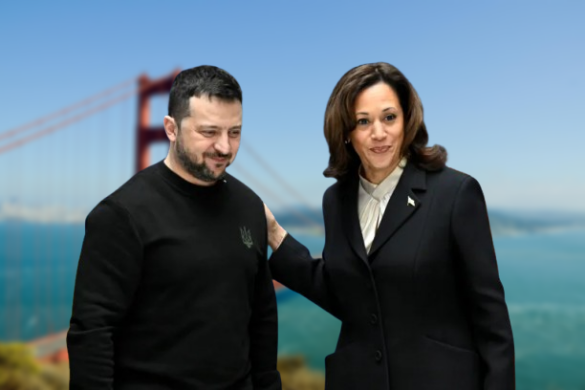Tensions between the United States and Russia have escalated once again following the announcement of new US sanctions targeting Russia’s state-funded media network, RT. Moscow has responded with a dire warning, claiming that its retaliatory measures will make “everyone shudder.” These new sanctions, seen as part of a broader information war ahead of the US 2024 Presidential elections, have heightened concerns about the role of media and foreign influence in global politics.
Contents
What Prompted the Sanctions?
The US Department of State announced sanctions against key figures within RT, including Margarita Simonyan, the editor-in-chief, and her deputy Elizaveta Brodskaia. These sanctions, according to the US, are part of efforts to combat foreign election interference. The move comes after allegations that RT employees funneled $10 million to a US-based company to influence voters through hidden Russian government messaging.
Russia’s Response: A Warning to the US
In a strongly worded statement, Maria Zakharova, the spokesperson for Russia’s Ministry of Foreign Affairs, condemned the sanctions, calling them part of a US pre-election information campaign. Zakharova warned that Russia’s retaliation will be swift, harsh, and powerful enough to make “everyone shudder.” She also accused the US of attempting to sway its electorate by using foreign media as a scapegoat, particularly in the run-up to the US elections in November.
Zakharova emphasized that any further attempts to expel Russian journalists from the US or create obstacles for their work would lead to “symmetrical and/or asymmetric” retaliatory measures. This could include targeting US media operating in Russia, further worsening diplomatic relations between the two nations.

The Alleged Influence Campaign: RT’s Role
RT, formerly known as Russia Today, has long been accused by Western governments of promoting Russian state propaganda. The media network has been labeled a foreign mission by the US, requiring it to disclose its properties and personnel. Several subsidiaries, including Ruptly, Sputnik, and RIA Novosti, have also been added to the US government’s list of foreign missions, highlighting the increasing scrutiny on Russian state-controlled media.
As part of the sanctions, RT employees such as Kostiantyn Kalashnikov and Elena Afanasyeva have been indicted for their roles in funneling funds to influence US elections through social media platforms. These individuals are accused of attempting to use covert methods to amplify pro-Russian messaging to US voters.
US-Russia Media Relations at a Breaking Point
The latest sanctions come amid growing concerns over the role of foreign media in election interference. US intelligence agencies have repeatedly flagged Russia as a primary threat to its election security. The FBI is still investigating allegations of hacking and information manipulation campaigns targeting both Democratic and Republican candidates in the upcoming elections.
Meanwhile, Moscow has dismissed these accusations, claiming that the US is using foreign interference as a political tool to justify pre-election actions. Zakharova argued that the US government is attempting to shift the narrative by targeting Russian media, framing it as an “information campaign” to influence its citizens.
Media Fallout and the Global Implications
The retaliation from Russia could further deepen the divide between the two nations, especially in the realm of media freedom and journalism. Many US media outlets have already reduced their presence in Russia following the outbreak of the Ukraine war and Moscow’s crackdown on dissent and freedom of speech.
As diplomatic tensions rise, experts are watching closely to see how both nations will navigate the precarious relationship between media control, national security, and public influence.
Conclusion
The US sanctions against RT and Russia’s promise of a strong response signal a new phase in the ongoing information war between the two nations. With both countries accusing each other of attempting to manipulate public opinion, the role of media in global politics is under intense scrutiny. As the 2024 US Presidential elections approach, the world will be watching to see how these tensions unfold and whether they will lead to a broader confrontation in the global media landscape.
FAQs
Q: Why did the US impose sanctions on RT?
A: The US sanctioned key RT figures as part of an effort to combat alleged foreign election interference. RT is accused of funneling money to influence US voters with hidden Russian messaging.
Q: How did Russia respond to the US sanctions?
A: Russia, through its Foreign Ministry spokesperson Maria Zakharova, warned of severe retaliatory measures that would make “everyone shudder.” They accused the US of using these sanctions as part of an information campaign ahead of the presidential elections.
Q: What is the role of RT in Russian media?
A: RT, or Russia Today, is a state-funded media network often accused of promoting Russian propaganda abroad. It is considered a foreign mission in the US and is under heavy scrutiny for its role in global media influence.
Q: What are the implications of this media conflict between the US and Russia?
A: The conflict could lead to further restrictions on media freedom in both countries, with the potential for retaliatory measures from Russia against US media operating within its borders.

